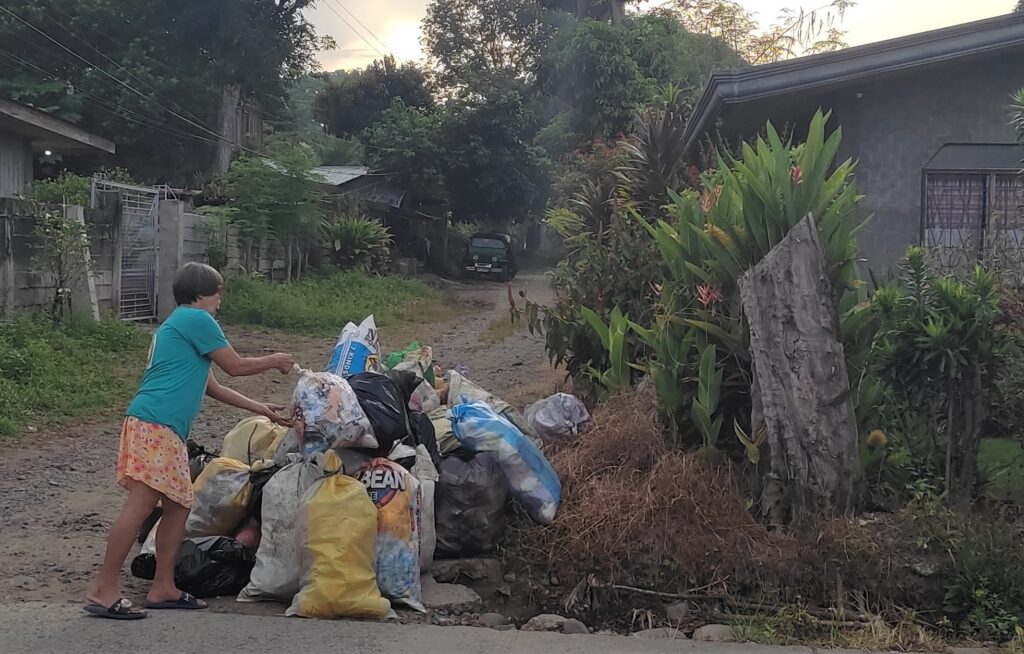Text and Photos by Henrylito D. Tacio
With the enactment of Republic Act (RA) 11898 – the Extended Producer Responsibility (EPR) Act of 2020 – the companies now are mandated to establish EPR programs for their plastic packaging.
RA 11898, which lapsed into law last July 30, also amended RA 9003 or the Ecological Solid Waste Management Act of 2000.
Director William P. Cuñado of the Environmental Management Bureau (EMB) considered the passage of the law as timely as “it addresses the urgency and necessity for collaboration between the public and private sector to combat environmental damages caused by plastic pollution and climate change.”
EMB is a line agency of the Department of Environment and Natural Resources (DENR).
Cuñado explained: “As President Ferdinand Marcos Jr. said in his first State of the Nation Address, the Philippines is among the most vulnerable countries to the effects of climate change. As such, the collaboration of both the public and private sector is deemed urgent and necessary to combat environmental damages that amplify the vulnerability of our country to climate change.”
Under the new law, companies will have to establish EPR programs for plastic waste reduction, recovery, and diversion.
RA 11898, Cuñado believed, is a “practical approach to efficient waste management, focusing on waste reduction, recovery, and recycling, and the development of environment-friendly products that advocate the internationally accepted principles on sustainable consumption and production, circular economy, and producers’ full responsibility throughout the life cycle of products.”
Through EPR, companies covered by the law have to recover or offset their generated plastic product footprint by 20% in 2023 and to 80% by 2028.
Plastics are part of the solid waste generated by Filipinos. A 2015 study conducted by the University of Georgia showed that 81% of plastics waste in the country was mismanaged. “Once plastic is discarded, it is not well managed,” deplores Agata E. Pawlowska, World Bank acting director for Brunei, Malaysia, Thailand, and the Philippines.
Among the plastic packaging covered by the EPR law include single or multi-layered plastics such as sachets, rigid plastic packaging products like food and drink containers, single-use plastic bags, and polystyrene.
Once the EPR law is implemented, a significant amount of plastic wastes will no longer be dumped on creeks, rivers, and oceans or be burned.
Penalties for non-compliance of EPR duties range from P5 million to P20 million, or “twice the cost of recovery and diversion of the footprint or its shortfall, whichever is higher.”
The EMB also supports the idea of Finance Secretary Benjamin Diokno in imposing tax on single-use plastics as a proactive measure to curb plastic pollution in the country.
Cuñado said the environment department has been pushing for a similar tax measure since the administration of former President Rodrigo R. Duterte.
“Imposing tax on single-use plastics is a positive development for the environment in several ways,” said Cuñado. “It can promote use of reusable packaging, reduce single-use plastic wastes, and extend the life of sanitary landfills.”
The enactment of the tax proposal, Cuñado believed, will prompt behavioral change among stakeholders towards proper waste management.
“With this proposal, it can potentially replace the ‘throw-away culture’ and address the long-standing problem of plastic waste ending up in our oceans and waterways,” Cuñado said.
From two million tons in 1950, plastic production increased worldwide to 380 million tons in 2015, according to Science Advances. Of the 7.8 billion tons of plastic produced between 1950 and 2015, about half has been produced in the last 13 years. The increase in plastic production is faster than the increase in world population.
The United Nations Environment Program says between 22% and 43% of the plastic used worldwide is disposed of in landfills, where its resources are wasted, the material takes up valuable space, and it blights communities.
“If we continue at our current pace, we will need new planets as landfills,” deplored Tricontinental: Institute for Social Research.
What is alarming is that most of the plastics end up in the oceans. “Over 80% of ocean plastics comes from the land – it is discarded and not well managed and thus leaks into the ocean,” a study conducted by Ocean Conservancy found out. “Only 20% is thrown directly or purposefully into the ocean from ships, drilling rigs, etc.”
“As long as there is an abundant supply of disposable plastics produced, consumers will always use these out of convenience. But, if these will be taxed, it may serve as motivation for the public to opt for reusable or recyclable products, which can result in a waste-free behavior for the betterment of the environment,” Cuñado pointed out.


